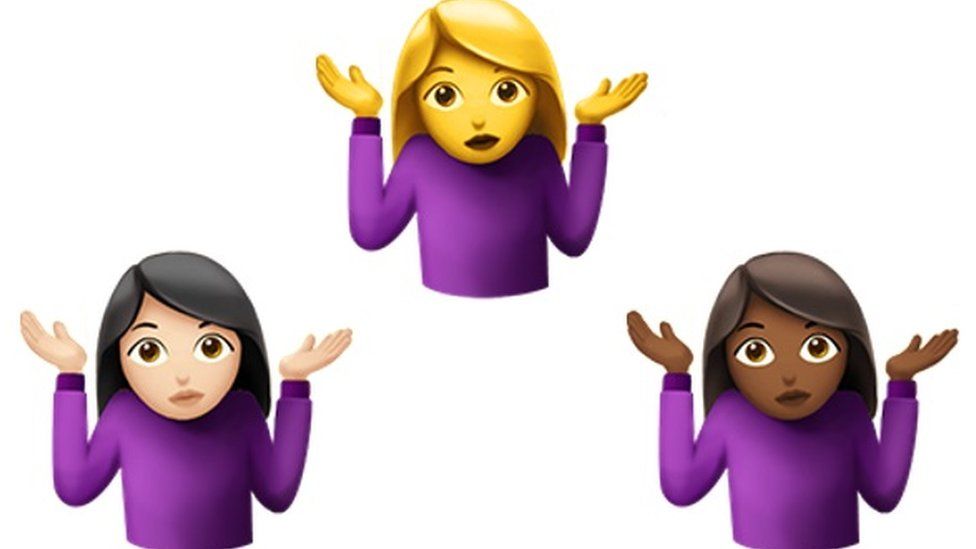Emoji skin tone options 'being used positively'
- Published

Emojis with a range of skin colours are being used positively, according to a study by Edinburgh University.
Researchers said the majority of Twitter users who opted for a modified emoji chose one which aligned to their own skin tone.
The study said they were not being used to "provoke antagonistic racial sentiment", as some had feared when they were introduced in 2015.
The researchers called for "more emoji options for self-representation".
Using a sample of a billion tweets, researchers found emojis with darker skin tones were used in mostly positive posts.
Twitter users with darker skin, according to their profile photos, were most likely to modify their emojis while lighter-skinned users were least likely to do so.
The study said this indicated that their use was an important factor in expressing identity online.
However, nearly half of the modified emojis which were used had lighter skins tones.
The research was led by Dr Walid Magdy from the University of Edinburgh's school of informatics, who said: "The introduction of skin tone choices for emojis has been a success in representing diversity and their extensive use shows that they meet a real demand from users."
The university's Alexander Robertson, who took part in the study, added: "This result should encourage the addition of more emoji options for self-representation - adding to those that have been recently made available, such as red hair."